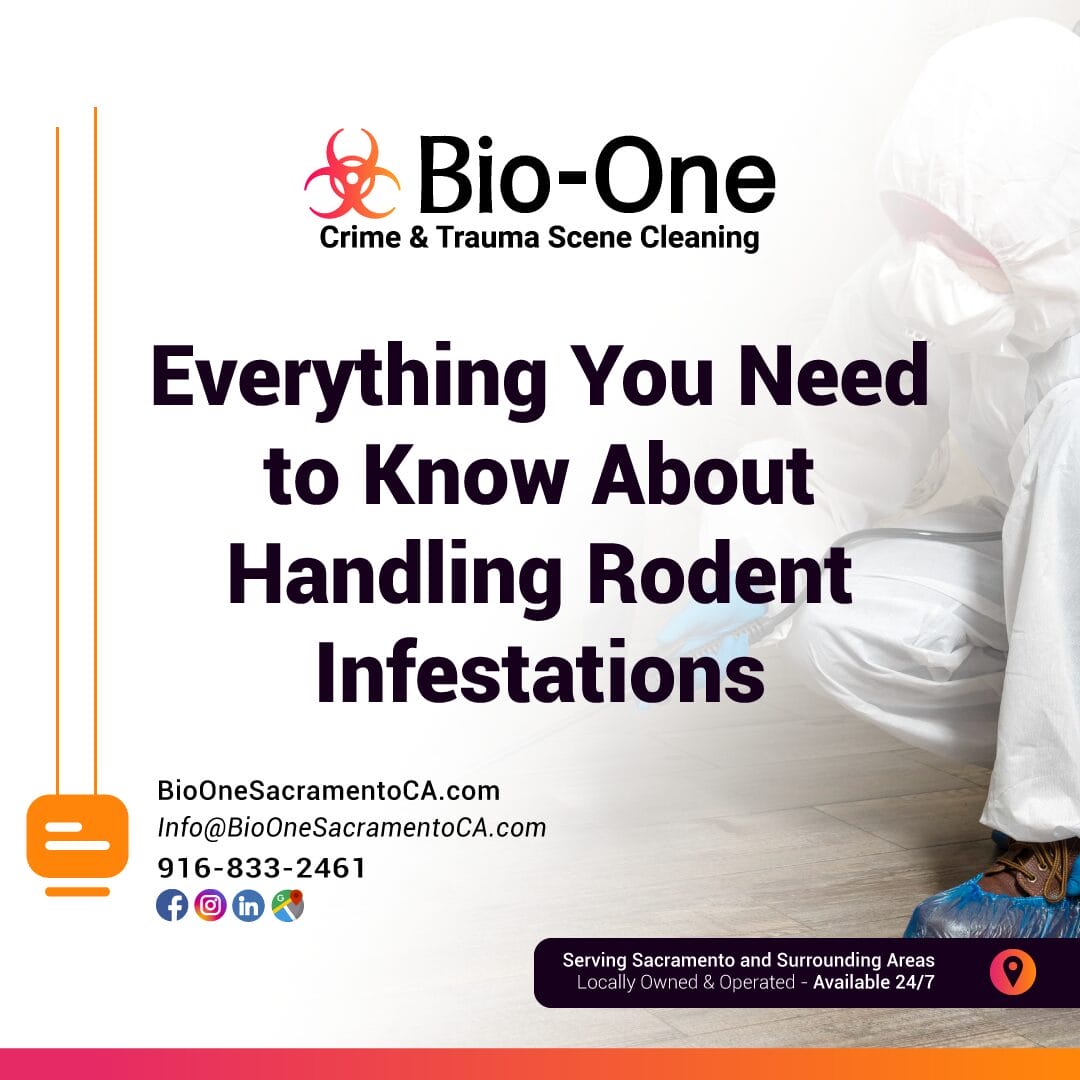
Nobody likes uninvited houseguests, especially the four-legged kind that scurry around at night, chew through wires, and leave unpleasant surprises in your pantry. We’re talking about rodent infestations. Not only are rats and mice unwelcome roommates, but they also pose some serious health and safety risks. If you’ve noticed a few too many droppings or heard suspicious scratching sounds behind your walls, this blog's for you.
Here, we’ll break down the key risks of rodent infestations, how to spot them, and—most importantly—what to do about it. Spoiler alert: if rats or mice have moved in, professional help should be your first call!
Why You Should Care About Rodent Infestations
Rodents aren’t just gross—they’re dangerous. Here’s why ignoring a rodent problem is a bad idea:
1. Health Hazards
Rodents can carry diseases like hantavirus, leptospirosis, and salmonella, which can be transmitted to humans through their droppings, urine, and saliva. For example, even sweeping up rodent droppings improperly could release harmful pathogens into the air. Nobody wants their spring cleaning routine to turn into a health hazard.
2. Property Damage
Rats and mice are relentless chewers. They’ll gnaw on everything from your food packaging to your electrical wiring (which could lead to house fires) and even the insulation in your walls. The longer they’re in your home, the higher the chances that they’ll leave devastation in their wake.
3. Rapid Multiplication
Got one mouse? You probably have more. Rodents reproduce at an alarming rate. A single pair of rats can multiply into hundreds within a year. The longer you wait to address the problem, the harder—and costlier—it is to eliminate.
Want to know the scary truth about how quickly rodent populations grow? Check out this info on rodent reproduction habits from the CDC.
How to Spot a Rodent Problem
The earlier you detect a rodent infestation, the easier it will be to control. Keep an eye out for these telltale signs:
Droppings
Rodents leave behind pellet-shaped droppings close to food sources, pantries, or along baseboards. If you spot these, it’s a clear red flag.
Scratching Noises
Hear light scuttling noises at night? That’s not your imagination—it’s likely rodents in your walls or floorboards.
Gnaw Marks
Rodents chew to keep their teeth sharp and short. You might notice bite marks on baseboards, furniture, or food packaging.
Nests
Rats and mice create little nests out of shredded paper, fabric, or insulation. Find one of these tucked away? It's time to take action.
Odd Smells
A strong, musky smell could signal a rodent population nearby. Their urine and droppings leave an unmistakable stench, especially as the infestation grows.
If you’re noticing any of these signs, it’s time to get proactive. Don’t wait until rodents have taken over your home like it's their personal Airbnb.
What Attracts Rodents to Your Home?
Understanding why rodents picked your home can help you avoid future infestations. Some common culprits include:
- Food Sources – Unsealed food, crumbs, or open trash cans are an all-you-can-eat buffet for rodents.
- Water Access – Leaky pipes or pet water bowls provide the hydration they need.
- Shelter – Gaps in walls, loose roof shingles, or deteriorated foundation give mice and rats an easy way in.
Keep in mind that even the cleanest homes can fall victim. Rodents are resourceful creatures, and if they want in, they’ll find their way.
Looking for ideas on how to rodent-proof your home? Read these tips from the EPA.
How to Deal with Rodent Infestations
Alright, so you’ve got a rodent problem. What now? Here are three essential steps you should take:
1. Act Immediately
The longer you wait, the worse it gets. Rats and mice breed fast. Address the problem the moment you spot evidence of their presence.
2. Call in the Professionals
DIY traps and poison might give you short-term relief, but they’re rarely enough for eliminating a full-blown infestation. Plus, incorrect use of rodenticides or traps can harm pets, wildlife, and even your family.
That’s where Bio-One Sacramento comes in. Our team specializes in removing rodent infestations, cleaning up contaminated areas, and restoring your home to a safe and healthy environment. Don’t go it alone—leave the dirty work to the experts.
3. Focus on Prevention
Once your home is rodent-free, seal it up! Close up gaps around windows, doors, and vents. Store food in airtight containers. And, take out the trash regularly. A little prevention goes a long way toward keeping them from coming back.
Need help pinpointing entry points or contaminated areas? We offer inspection services that will leave no stone unturned. Learn more about our services here.
Why You Should Avoid DIY Methods
Sure, you might consider laying some traps or using over-the-counter repellents to save money, but here’s the thing—it rarely works long term. Rodents are smarter than you think, often learning how to avoid traps or outsmart deterrents. Plus, dealing with dead rodents or cleaning up waste can expose you to dangerous diseases if not handled properly. Yuck.
When it comes to infestations of this scale, calling in rodent control professionals isn’t just an option; it’s the best way to ensure your home and family stay safe.
For more info or to get started today, visit Bio-One Sacramento. We’re here to help.
Final Thoughts
Rodent infestations can feel overwhelming and downright gross, but the key is to act quickly and call in the pros. With the right knowledge (and a bit of elbow grease), you can get these pesky critters out of your home and keep them out for good.
Still have questions or concerns? Browse our site or start a consultation. Whether you’re dealing with an active infestation or just want to rodent-proof your home, Bio-One Sacramento has your back!


